Small-Screen 66 – #57: Lost in Space
(CBS, 1965-68)
You should probably just get used to these delays in between posts. But don’t think I’m slacking off! I’ve simply been devoting my time to thorough research…which, in this case, entails watching a lot of TV (both the show du jour and those further down the list). It’s a tough job, but I do it all for you!
Now back to your regularly scheduled program.
Even if you’ve never watched Lost in Space, there’s a good chance you’re more familiar with it than you might think. Need proof? Just listen to the following, and imagine copious arm-flailing accompanying it:
“DANGER, WILL ROBINSON! DANGER!”
Ring a bell? If so, then “Lost in Space” hasn’t been completely “lost” on you.
The show was pitched to CBS by Irwin Allen, a filmmaker who had risen to prominence in the fifties and was already producing the science-fiction adventure series Voyage to the Bottom of the Sea for ABC (in the coming years, Allen would add several other sci-fi sagas to his roster, including Land of the Giants and The Time Tunnel). Allen initially envisioned Lost in Space as an interstellar pioneer story, focused on the day-to-day struggle for survival by the spacefaring protagonist family. He dubbed this family the Robinsons, after Johann Wyss’ classic of castaway literature, The Swiss Family Robinson (in fact, Allen originally planned to call the show “The Space Family Robinson,” but this title was already taken by a series of Gold Key comic books).
The pilot takes place in the distant future of October 1997, with the Robinsons poised to become the first family to travel to a nascent human colony on a planet orbiting Alpha Centauri. The prospective settlers include father John Robinson (Guy Williams, best known for playing Zorro in Disney’s TV incarnation), mother Maureen (June Lockhart, aka “the mom from Lassie”), teenage daughter Judy, and pre-teens Penny and Will. Accompanying the Robinsons on their mission is the strapping Major Don West, to serve as pilot. They all blast off in the Jupiter 2, a state-of-the-art spacecraft/living quarters which will ferry the family to their celestial homestead. The Robinsons will spend the years-long trip in suspended animation (raising the question of why exactly they need a pilot…to oversee landing at the other end, I suppose).
But things don’t quite go according to plan. Dr. Zachary Smith, an agent of a shadowy, vaguely foreign military/spy agency, has snuck aboard the Jupiter 2, intent on sabotaging the mission. He reprograms the Robinsons’ robot servant to destroy the ship’s vital systems once the ship is a certain distance from Earth. Unfortunately, Smith becomes trapped aboard the Jupiter when the doors seal shut. Unable to contact his agency for assistance, he becomes “The Reluctant Stowaway” who gives the episode its title. When the robot does eventually go rogue, Smith has no choice but to awaken West and the Robinsons, explain the situation, and beg for their help. Together, the family manages to subdue the robot before the ship is destroyed, but not before the damaged navigation system sends them disastrously off course. This leaves them…you guessed it…Lost in Space.
In the very next episode, the cosmic castaways set down on an unknown planet. Where exactly are they supposed to be? If they were traveling at sub-light speeds, they couldn’t be all THAT far from our own Solar System. But if the ship does indeed have “hyperspace” capabilities… why did they need the suspended animation chambers? Spacetime conundrums aside, the Robinsons now must survive on a hostile alien world, and the first major story arc (six episodes or so) sees the family traversing the wilderness in “the Chariot,” an all-terrain land vehicle carried aboard the Jupiter 2. They must contend with threats ranging from a tribe of giant cyclopes to extreme and rapid temperature fluctuations (the Chariot nearly sinks when a frozen “tundra” melts into an ocean mid-crossing).
Generally speaking, the first season maintained this tone of trailblazing adventure against a science fiction backdrop. But even early on, elements of camp and comedy crept in at the fringes, due largely to two forces:
1. Irwin Allen blew the season’s budget on the impressive pilot arc. Before too long, the crew resorted to re-using props and monster suits from other Allen-helmed sci-fi shows.
2. Dr. Smith came into his own as the series’ “breakout character”…somewhat ironic, as the character was a late addition to the show (neither he nor his recurring comic foil, the stern and scolding robot, appeared in the first pilot shot; instead, a meteor storm originally caused the Robinson’s lost-ness). Because he “came aboard” late, Smith-portrayer Jonathan Harris received last billing on the opening credits. Thus, he successfully lobbied to receive a “Special Guest Star” credit for each episode in which he appeared. Though his role in the aired pilot is that of a fairly capable, sinister villain, Harris originally expected to be on the show for a only a few episodes, and thus decided to “make the most” of his brief screentime and swing for the fences in terms of sheer “ham.” Overnight, Smith became a simpering, weak, malcontented coward. But this campy, conniving characterization (coupled with ample alliteration) made the “good doctor” a hit with viewers, and before long Smith was becoming the focus of the show. In the end, Jonathan Harris appeared in every episode of Lost in Space… and was billed as a “Special Guest Star” in every single one.
Season 2 brought a change to shooting in color. Now, every alien ambush and gamma ray burst (each episode ended in an explosive “tune in next time!” cliffhanger) would be rendered in glorious, psychedelic hues. After all, Lost in Space now had to compete with the 60’s Batman series, aired by rival ABC is the same timeslot. To “keep up” with Adam West’s outlandish antics, Lost in Space turned the camp factor to eleven: Second-season alien visitors included space prospectors, a Gepetto-inspired space toymaker, and even space Valkyries in full Wagnerian opera-garb. By this point, most episodes assumed a fairly set formula:
-Dr. Smith bumbles into some absurd predicament, due to a combination of his vanity, laziness, and/or other deadly sins.
-The Robot chastises him.
-Smith retorts with a cavalcade of alliterative insults (decrying the Robot as a “bubble-headed booby,” for instance, or a “pusillanimous pipsqueak”).
-Young Will Robinson attempts to help – by now, he seems to be the only one doing any actual “adventuring.”
-Finally, John and Don show up to shoot or slash some stuff and save the day (typically leaving the women-folk back at the ship, preparing insta-food and cleaning insta-laundry).
-In the “cliffhanger” ending which really just constitutes the first scene of the episode to come, Dr. Smith wanders into yet another wacky dilemma. TUNE IN NEXT WEEK!
Season 3 featured more of the same, with an even greater focus on Smith, Will, and the Robot. The biggest change came in the form of a new, brassier theme song (which, I have to admit, would make a great marching band tune), and new outfits for the cast: the already garish striped jumpsuits now sported eye-burningly bright pastel color schemes. Accordingly, episode plots somehow grew even MORE campy. In one episode, space hippies blow through town, with Smith briefly joining their groovy group. In another, the Robinsons are menaced by a Scottish ghost.
In perhaps the show’s most talked-about episode, “The Great Vegetable Rebellion,” Smith surreptitiously sets down on a foliage-covered planet, on the nicer-than-usual pretense of collecting a bouquet as a last-minute “birthday present” for the robot (don’t ask me what determines a robot’s “birthday”). Smith plucks a few choice blossoms, only to be apprehended by Tybo, a lumbering, orange…carrot man. Tybo has vowed to bring the heterotrophs of the universe to justice for snacking on his vegetable kin. He plans to accomplish this by turning Smith and the others into Troll 2 – esque “half-man, half-plant” hybrids. Tybo’s servant, Willoughby, serves as a “successful” test case: He claims to have had his heart replaced with “a lettuce heart,” and the transplant has left him with unnaturally pale skin and radish-purple hair. The Robinsons very nearly share Willoughby’s Nilbogification, but earn Tybo’s goodwill by watering him when he inadvertently becomes stranded “high and dry.”
The episode represents the pinnacle of cartoonish, Smith-centric wackiness. Some of Harris’ co-stars resented the shift in focus off of their characters and the original, more serious tone of the series. Mark Goddard, who played Don West, reportedly complained that he had endured “seven years of Stanislavski,” only to be upstaged by a talking carrot. And Guy Williams, who initially expected to be the “star” of the show, retired from acting upon its cancellation (he lived out the rest of his days in Latin America, where locals with favorable memories of his Zorro performance helped soothe his bruised ego).
I for one appreciate the camp. Okay, maybe Irwin Allen’s schlock-fests robbed more ambitious sci-fi fare (such as Gene Roddenberry’s Star Trek, a surprisingly less-successful contemporary of Lost In Space) of attention and credibility. And maybe this lack of credibility inspired the dearth of “quality” science fiction programming throughout the 1970s. Dr. Smith unquestionably “Urkeled” the show – but does that mean he ruined it? As it stands, Lost in Space is bizarre, colorful, and, like some of my favorite movies, it quite simply shows you things you won’t see anywhere else. Carrot-men included. It’s not for nothing that “The Great Vegetable Rebellion” earned a coveted spot (#76) on TV Guide’s “100 Greatest Episodes of All Time.”
And besides, not all episodes are COMPLETELY campy. I want to mention just one more before I bring this increasingly monstrous post to a close. In “His Majesty Smith” (S1E24), one of the series’ last black-and-white episodes, Dr. Smith finds a crown resting on a pedestal in the middle of nowhere. He places the crown on his head, and is promptly greeted by a crowd of adoring “subjects.” The aliens introduce themselves as “Andronicans,” and declare that Smith is now their king. They insist that he must accompany them back to their homeworld to rule. Will says he’ll miss Dr. Smith, though the other Robinsons are less upset to see him go. For his part, Smith lets his greed override any attachment he may feel to his “shipmates,” and departs on the Andronican craft. Only after takeoff do Smith’s loving throngs power down, revealing themselves to be mere automatons. The REAL Andronican, a grotesque, hairy type with a Slavic accent, emerges and discloses his true purpose: Andronicans, he says, hold a ritual sacrifice every year. But, being logical creatures, they have long since realized it is detrimental to sacrifice “useful people.” Therefore, they comb the galaxy for “useless specimens” who serve only themselves. Smith’s greed and disregard for his fellow travelers have shown him to be a prime candidate for “guest of honor” at the sacrificial rite.
The obsequious Smith pleads to be returned to the Jupiter 2, insisting that he does serve a purpose, and that the Robinsons will miss him after he’s gone. The Andronican mulls this over a moment, and finally decides that Smith is right. The alien brings up a video feed of the Robinsons’ planet, showing that he has just returned “Smith” to the Jupiter…an android doppelganger. The real Smith watches, horrified, as his double actually HELPS the Robinsons: Planting crops, cleaning house, and even playing games with the family.
“He is you,” says the Andronican. “Without your faults.”
Eventually the Robinsons do rescue the real Smith (Will argues that any human life is worth more than a machine), but it feels anti-climactic. The episode brings Smith unusually close to something like comeuppance for all the lousy things he does, but even with this Scrooge-like second chance, he does nothing to reform. You seriously have to wonder why the Robinsons continue to welcome Smith back into the fold after he attempts to cheat, deceive, maroon, and even enslave them on a near-weekly basis. “His Majesty Smith” treats the matter with a rare bit of gravitas. It’s not only my favorite episode of the show, but one of my favorites in all of television. The idea that our friends and family just might be better off with a “robot us” stripped of our shortcomings is chilling, yet motivating at the same time. Clean up your act, kiddies, and put community before self! The Andronicans are watching!
Incidentally, if you find yourself wondering how the series ends…it doesn’t, really. Though assorted warps and wormholes fling the Jupiter 2 crew throughout the galaxy, including once to their destination of Alpha Centauri, and at least twice to Earth, it never lasts. The final episode of season 3 ends just like any other. The series’ cast and crew expected a fourth season to be produced, but it was not to be.
And thus the Robinsons remained “Lost in Space” forever.
It’s far from the bleakest ending in television history. But that’s a discussion for another day.
Tidbits:
-It’s hard to reconcile the competent, superspy Dr. Smith of the pilot with his later, bungling self. But remember, he botched even his attempted sabotage. In my headcanon, Smith’s superiors assigned him the mission solely to get rid of him, a la the museum staff in Bean: The Movie.
-Tybo, the talking carrot, was played by character actor Stanley Williams, better remembered as nefarious merchant Cyrano Jones in the classic Star Trek episode “The Trouble with Tribbles”
-Both versions of the Lost in Space instrumental theme music were written by a young John Williams…really. He’s credited as “Johnny Williams.”
-One of Jonathan Harris’ final roles was as the voice of Manny, the praying mantis magician in Pixar’s A Bug’s Life. Oh, yeah…he also voiced the main antagonist of a little show called Channel Umptee-3.
—
You can keep up with Brian’s Small-Screen 66 countdown here.


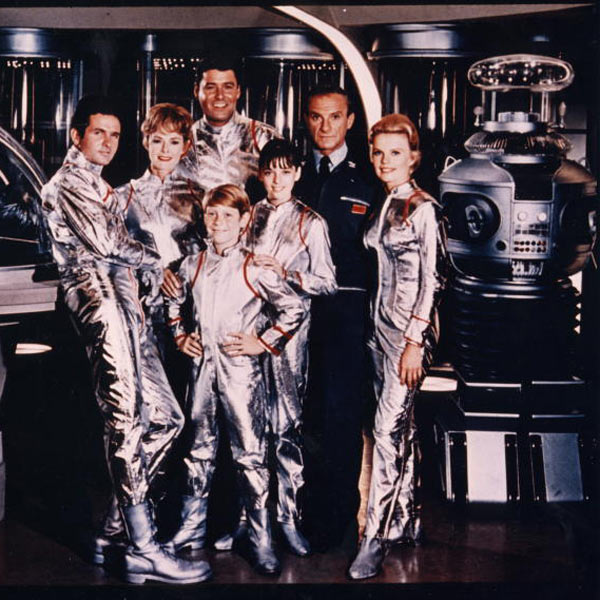
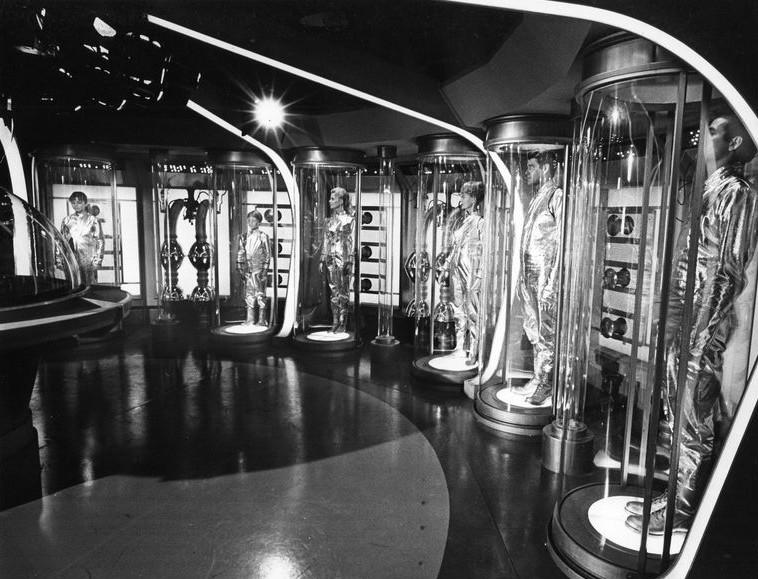
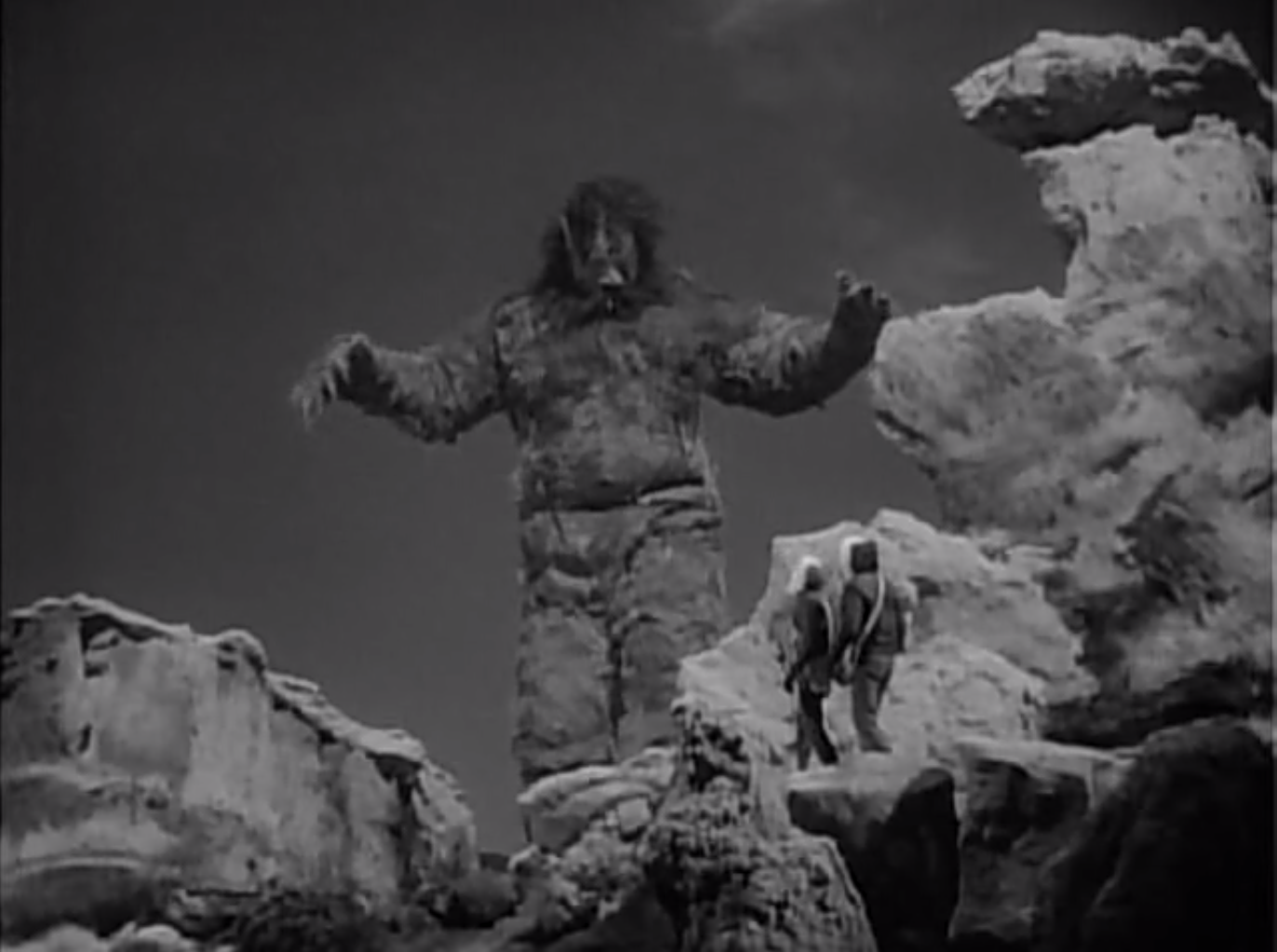
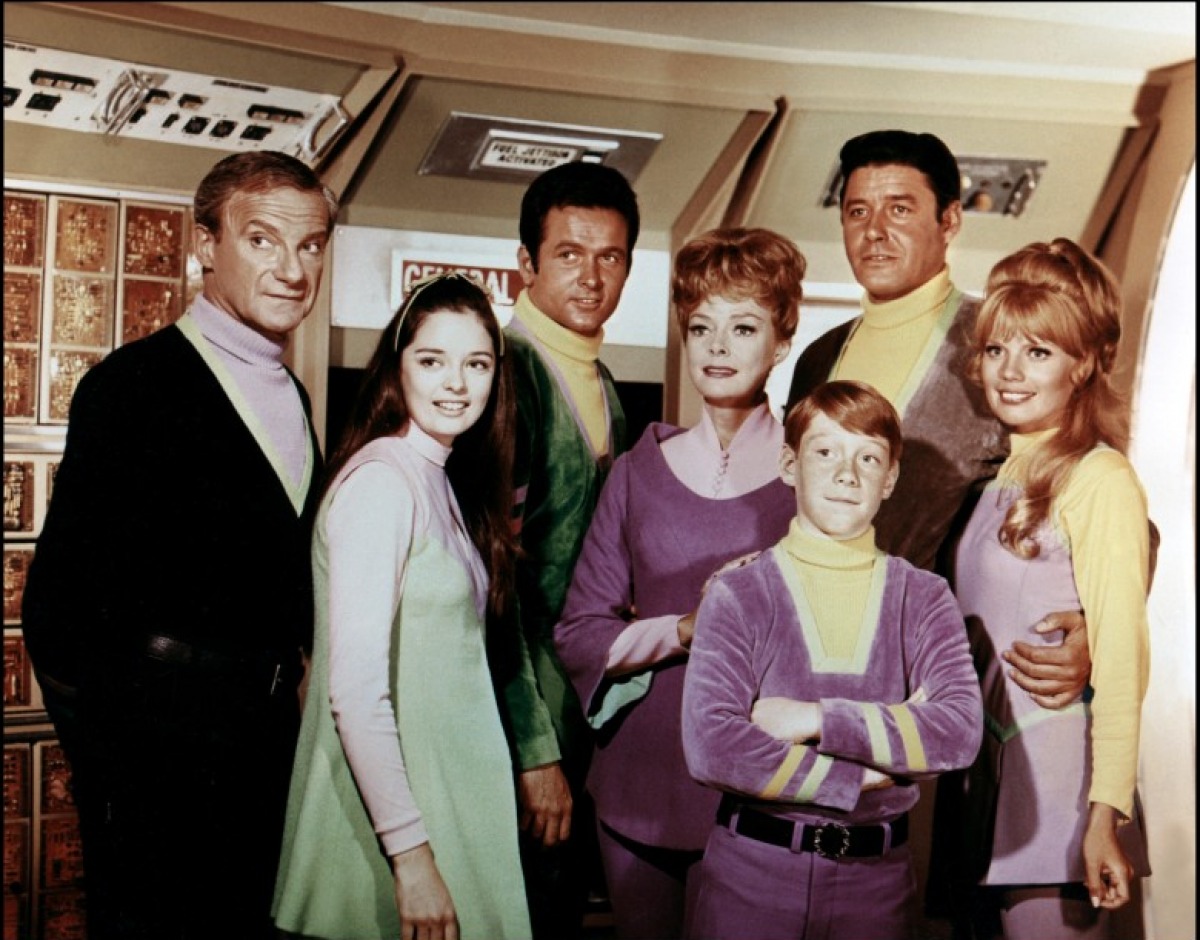
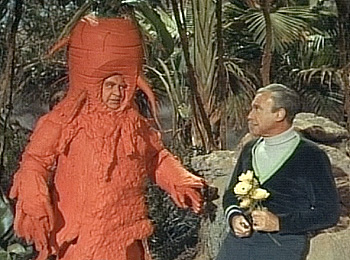
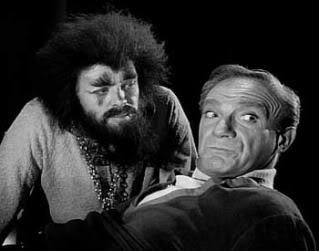
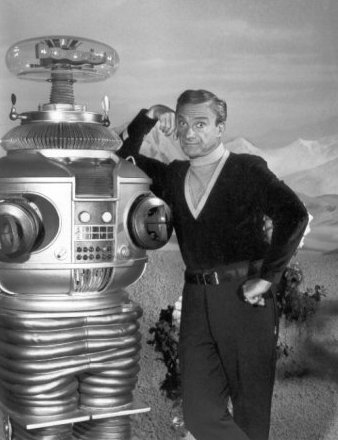



Hmm is anyone else experiencing problems with the images on this blog loading? I’m trying to find out if its a problem on my end or if it’s the blog. Any responses would be greatly appreciated.|
I got this web site from my pal who told me about this web page and at the moment this time I am browsing this website and reading very informative posts at this time.|